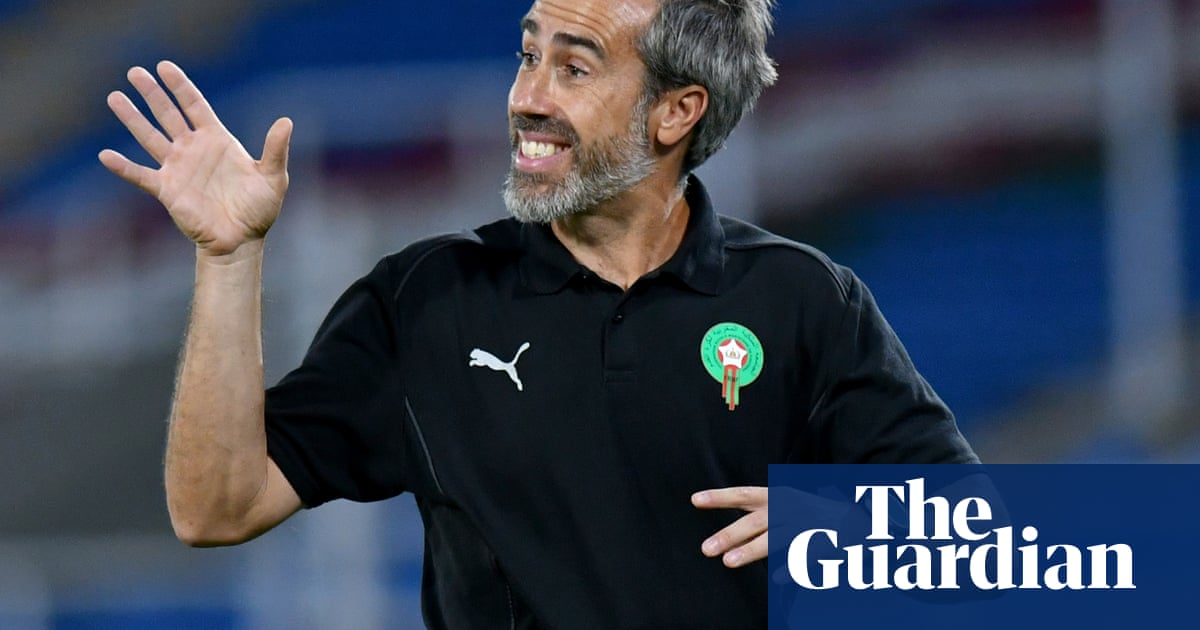The historic task of one host staging Africa’s two major competitions this year, the women’s and men’s Africa Cup of Nations – Wafcon and Afcon – within six months of each other could really have been given to only one country: Morocco. It has arguably the best football facilities on the continent and has made itself the tournament-hosting sweet spot for the Confederation of African Football (Caf).
Three years ago a very successful Wafcon was staged there and the North African country then agreed to organise the next two tournaments, as no other nation on the continent offered to shoulder the responsibility. The 2025 edition kicks off on Saturday evening, with the hosts playing Zambia in the opening game.
The increasing influence of Morocco in Caf’s affairs has set tongues wagging, sometimes loudly, in the continent’s governance corridors. Suleiman Waberi, a member of Caf’s executive committee and the Fifa council, says Morocco should be commended for stepping up when others shirked away from the responsibility.
“At the time when we took the decision, in the executive committee, to give the tournaments to Morocco, no country wanted to host the competition,” he says. “Are we supposed to reject what was a very sound, secure bid, just because it would mean that Morocco will be hosting it for a second successive time? They did a great job with the last tournament and there is no doubt that they will do so again.”
Morocco reached the final in their Wafcon debut before losing to South Africa but the impressive run was not enough for the FRMF, the Moroccan football federation, to keep the high-profile French coach Raymond Pedros, who had previously won the Women’s Champions League with Lyon, in his job.
The FRMF’s subsequent recruitment of Jorge Vilda, who won the World Cup with Spain in 2023 but was subsequently sacked amid the fallout from Luis Rubiales’s unsolicited kiss on Jenni Hermoso, was an uncompromising statement about its thirst to see the Atlas Lionesses ascend the summit of the African women’s game in the shortest possible time.
Vilda is acutely aware of Morocco’s huge expectations. “It’s not a negative pressure. It’s a huge desire to do well,” he told Caf’s website. “Winning a World Cup [was] the result of the work of many people over many years … Here, we are in a different reality, but I think that in almost two years, we have contributed to the progress of the selection and Moroccan women’s football. We are very keen to see this translated into results, even if we know that it takes time to achieve this.”
They face some tough competition, though. South Africa’s Banyana Banyana will want to retain their title and Nigeria’s Super Falcons, the juggernaut of the African women’s game, are out to win a 10th Wafcon title. There is also the hunger of Zambia’s Copper Queens, who finished third in 2022, to go all the way with world-class players such as Barbara Banda and Racheal Kundananji to call upon. It is fair to say that the three-week tournament, which begins on Saturday with Zambia taking on the hosts, will be the most keenly contested in the 27-year history of the tournament as a standalone event.
Algeria, Botswana, the Democratic Republic of the Congo, Ghana, Mali, Senegal, Tanzania and Tunisia are the other countries in the 12-team tournament, which will be staged in Rabat, Mohammédia, Casablanca, Berkane and Oujda. It was due to be held last year – and is still called the 2024 Wafcon – but a scheduling problem between Caf and Fifa meant it was delayed.
There are other problems too that cannot mask the organisational chaos creating a backroom nightmare for the continent’s elite teams.
Desiree Ellis, who managed South Africa to their first continental title and has the responsibility to retain the trophy, continues to coach the team despite being out of contract for the past seven months. Her players are also in dispute with the South Africa Football Association over unpaid bonuses and allowances. Nora Hauptle, the Swiss coach of Zambia, meanwhile, reported the country’s FA to Fifa for failing to pay her salary for several months.
And in what will not be a surprise for followers of the country’s football, Nigeria could see its players stage yet another Wafcon strike in Morocco, as the players seethe with anger over unpaid qualification bonuses.
Sign up toMoving the Goalposts
No topic is too small or too big for us to cover as we deliver a twice-weekly roundup of the wonderful world of women’s football
after newsletter promotion
The general secretary of the Nigerian Football Federation, Mohammed Sanusi, when asked by the Guardian why it is owing the players money, tersely said: “The issue is purely a matter between the players and the NFF.”
Another NFF official told the Guardian: “Our women, throughout the continent, are doing phenomenal things on the field. We, as officials, as those responsible for governance, have to do a lot better. The quality of the talent on the pitch must be matched by our management of the game off it, if the African game is to reach its potential.”
No connoisseur of the African women’s game will disagree with that.
If you have any questions or comments about any of our newsletters please emailmoving.goalposts@theguardian.com.
This is an extract from our free weekly email, Moving the Goalposts. To get the full edition,visit this page and follow the instructions. Moving the Goalposts is delivered to your inboxes every Tuesday and Thursday.
